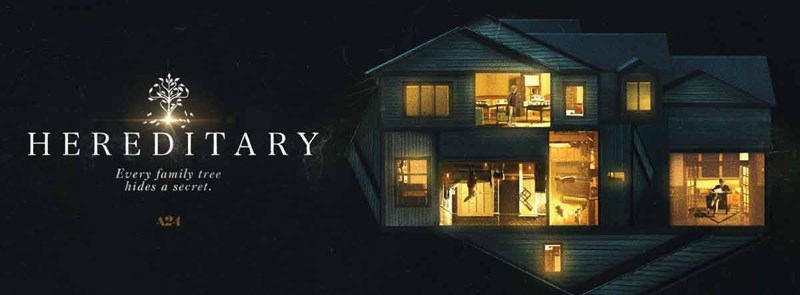Hereditary has been caught in the Hype Cycle for months. It wowed critics back at Sundance in January, building a full-head of steam towards its June release date. Once in theatres, it garnered further critical praise, along with a healthy box office performance. But it also experienced the natural extension of the Hype Cycle: The Backlash.
��
When a movie is crowned the “scariest film since The Exorcist,” people are bound to raise their eyebrows. The filmgoing public has watched Hereditary with heightened expectations, waiting from something soul-shatteringly terrifying. People have been quick to denounce Hereditary as slow-moving, plodding, and overhyped. The Hype Cycle raises a film up, making it a prime target to be knocked down.
��
Like clockwork, we have another classic “Movie that Represents the Divide Between Critics and Audiences.” Horror films are particularly susceptible to this phenomenon, with the critically lauded It Comes at Night and The VVitch being pilloried by John Q Public. Hereditary is the same old song with a different rhythm. ��
��
������徱�ٲ�����’s Hype Cycle can’t be put back in the genie’s lamp. Its reputation supersedes the actual movie. It’s hard to imagine Hereditary playing before an audience without the weight of massive expectations. Thankfully, if you understand you’re watching a slow-burn nightmare flick instead of an Evil Dead (2013 version) assault on the senses type film, Hereditary smashes it out of the park.
��
Hereditary is easily the best American horror movie since 2015’s It Follows. Like that film, Hereditary is wholly committed to exploring every fresh, horrifying angle to its relatively simple premise. It layers every scene with an impending sense of dread. The fact that one of the film’s earliest scenes features a discussion of Greek tragedies is no accident: In Hereditary, the characters (and the audience) are being dragged through a crushing doom like pawns on a chessboard.
��
Hereditary, in the most basic sense, is about familial grief. Annie (an astonishing Toni Collette) and her family are struggling to process the death of a loved (and hated) relative as the film opens. Stoic patriarch Steve (Gabriel Byrne) masks his sadness while son Peter (Alex Wolff) dulls his sense with drugs. Annie throws herself into her work (miniature figurines), neglecting her quiet and possibly disturbed daughter Charlie (Milly Shapiro). The family soon realizes, however, that the dead have plans for them.
��
Hereditary spirals out from this basic setup into outright insanity. To spoil any of it would ruin the surprise and fun. One of the film’s true strengths is to hide its actual story in plain sight. The film is peppered with clues and foreshadowing, creating a world of depth and menace.
��
Director and writer Ari Aster soaks the film in dread and tension. Even scenes set during daylight feel uneasy and warped. He shows a particularly knack for smooth editing transitions and quiet long takes. The camera snakes through scenes, taking on an almost predatory gaze towards the characters. It takes genuine talent to make such gruesome subject matter look mesmerizing.
��
Toni Collette is never less than incredible as Annie. She walks the razor’s edge between sympathetic and detestable, nailing every second. Her performance has echoes of Jack Nicholson in The Shining and Kathy Bates in Misery, but she makes the character all her own. She’s supported by the always solid Gabriel Byrne and a surprising turn by Ann Dowd as a fellow griever.
Hereditary is disturbing. It’s the kind of horror movie that sticks with you weeks after the credits roll. It’s a deliberate film, one that takes its time ratcheting up the tension. Forget the Hype Cycle and watch it for what it is: Absolute nightmare fuel.




